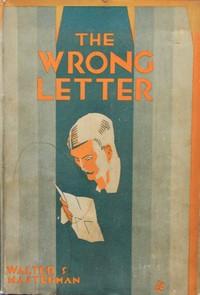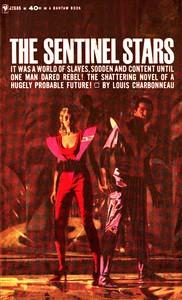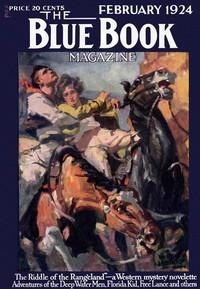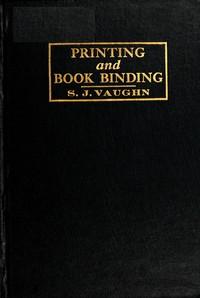|
|
Read this ebook for free! No credit card needed, absolutely nothing to pay.Words: 43537 in 37 pages
This is an ebook sharing website. You can read the uploaded ebooks for free here. No credit cards needed, nothing to pay. If you want to own a digital copy of the ebook, or want to read offline with your favorite ebook-reader, then you can choose to buy and download the ebook.

: The wrong letter by Masterman Walter S Walter Sidney Chesterton G K Gilbert Keith Author Of Introduction Etc - Detective and mystery stories; Murder Investigation Fiction; Private investigators England London Fiction; Great Britain. Metropolitan Police Off@FreeBooksSat 24 Jun, 2023 PREFACE I can say with all sincerity, nay with all solemn responsibility, that this detective mystery deceived me. And as I have been looking out for a long time for a detective mystery that should be at least deceptive, whatever its other merits or demerits in being detective, I very willingly write a word to serve as a preface to it, though such books ought not to need such prefaces. The detective story is in this way a paradox because the true reader and critic not only desires to be gulled, but even desires to be gullible. I wish when reading such a story to become as simple as Dr. Watson; to be in the happy, cheerful, childlike, radiant condition of Dr. Watson and not in the much more dark and disillusioned and satiated and sceptical condition of Sherlock Holmes. I generally am in that childlike condition. But in every case it is my ardent and aspiring ambition to be stupider than the man who wrote the story. And in the case of this story I actually succeeded. This desire to be deceived is really peculiar to detective romance. It is in another sense that we say the same thing of other types of romance. It is sometimes said that when we go to the theatre we pay to be deceived. But we are not really deceived; we do not think that the dramatist intends something that he does not intend; we do not think the actor is doing something that he is not doing. We only forget, or half forget, for a moment, in the continuity and consistency of certain events, the fact that they come from a dramatist and an actor. But if we happen to remember it, we do not remember it with surprise. We are not astonished to discover that there is an actor on the stage, as we are astonished to discover that there is a corpse in the summer-house. We do not feel a momentary incredulity when we are told that the play was written by a playwright, as we do feel when we are told that the crime was committed by a curate. We watch a great actor performing Hamlet so well that we lose for an instant the sense that he is a great actor; we feel for the moment that he is young Hamlet trying to avenge the death of old Hamlet upon Claudius. But we do not, either in forgetting or remembering, feel any shock of fact or the change of fact. We do not feel as we should feel if the play took a new and sudden turn, and we found that Hamlet had killed his own father and that his uncle was a perfectly blameless character. That would be the Detective Drama of Hamlet, Prince of Denmark, and now that so many peculiar experiments are being tried with that tragedy, I respectfully suggest it to the managers of the London Theatres. If it is the first rule of the writer of mystery stories to conceal the secret from the reader, it is the first duty of the critic to conceal it from the public. I will therefore put my hand upon my mouth; and tortures shall not reveal the precise point in this story at which a person whom I had really regarded as figuring in one legitimate capacity suddenly began to figure in another, which was far from legitimate. I must not breathe a word about what the writer of this dramatic mystery does. I will confine myself strictly to saying what he does not do. And merely out of the things which he does not do, I could construct an enthusiastic eulogy. On the firm foundation of the things he does not do, I could erect an eternal tower of brass. For the things he does not do are the things being done everywhere to-day, to the destruction of true detective fiction and the loss of this legitimate and delightful form of art. He does not introduce into the story a vast but invisible secret society with branches in every part of the world, with ruffians who can be brought in to do anything or underground cellars that can be used to hide anybody. He does not mar the pure and lovely outlines of a classical murder or burglary by wreathing it round and round with the dirty and dingy red tape of international diplomacy; he does not lower our lofty ideals of crime to the level of foreign politics. He does not introduce suddenly at the end somebody's brother from New Zealand, who is exactly like him. He does not trace the crime hurriedly in the last page or two to some totally insignificant character, whom we never suspected because we never remembered. He does not get over the difficulty of choosing between the hero and the villain by falling back on the hero's cabman or the villain's valet. He does not introduce a professional criminal to take the blame of a private crime; a thoroughly unsportsmanlike course of action and another proof of how professionalism is ruining our national sense of sport. He does not introduce about six people in succession to do little bits of the same small murder; one man to bring the dagger and another to point it and another to stick it in properly. He does not say it was all a mistake, and that nobody ever meant to murder anybody at all, to the serious disappointment of all humane and sympathetic readers. He does not make the general mistake of thinking that the more complicated the story is the better. His story is complicated enough, and on many points open to criticism; but the secret of it is found in the centre; and that is the central matter in any work of art. The Crime The telephone bell rang on the table of Superintendent Sinclair at Scotland Yard. He was a busy man, and had given orders that he was not to be disturbed except on matters important. Putting down a paper he had been reading, he picked up the receiver. A woman's voice spoke. "Is that Scotland Yard?" "Yes, yes," he said impatiently, "Superintendent Sinclair speaking, what is it?" "Listen carefully," said the voice. "The Home Secretary has been murdered at his own house, it would be as well if you would come at once. Have you got that? Just repeat." Even Sinclair, the coolest head in the service, was staggered for a moment. There was not a trace of hurry or emotion in the voice. It might have been inviting him to tea. Before he could collect himself, the voice began again. "I will repeat," and the same impassive message came through with the concluding words, "Have you got that?" Sinclair pulled himself together. Free books android app tbrJar TBR JAR Read Free books online gutenberg More posts by @FreeBooks
: The sentinel stars by Charbonneau Louis - Science fiction; Man-woman relationships Fiction; Dystopias Fiction; Apocalyptic fiction; Totalitarianism Fiction@FreeBooksSat 24 Jun, 2023

: Pilaesitelmiä by Lehmus Heikki - Finnish literature; Finnish wit and humor@FreeBooksSat 24 Jun, 2023
|
Terms of Use Stock Market News! © gutenberg.org.in2025 All Rights reserved.






